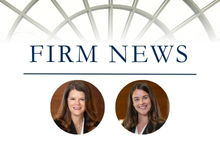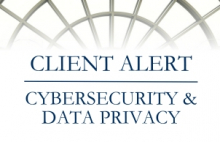FTC Launches Rulemaking Process to Address “Junk Fees”
December 2, 2022On October 20, 2022, the Federal Trade Commission (the “FTC”) announced the initiation of a new rulemaking process to address hidden fees, charges, and add-on fees assessed for goods and services, which the FTC and the White House have collectively coined as “junk fees.” Shortly thereafter on November 8, 2022, the FTC commenced the first step in the rulemaking process, publishing an Advanced Notice of Proposed Rule Making (“ANPR”) in the Federal Register, which is currently under public comment.
Defining “Junk Fees”
The ANPR defines “junk fees” as “unfair or deceptive fees that are charged for goods or services that have little or no added value to the consumer, including goods or services that consumers would reasonably assume to be included within the overall advertised price.” According to the ANPR, junk fees also encompass “hidden fees, which are fees for goods or services that are deceptive or unfair, including because they are disclosed only at a later stage in the consumer's purchasing process or not at all, whether or not the fees are described as corresponding to goods or services that have independent value to the consumer.” As examples of junk fees, the ANPR references “resort fees” often charged by hotels and transaction fees often charged by online ticket sellers.
Scope of Potential Rule
Currently, the proposed junk fee rulemaking is not targeted toward any specific industry, but rather intends to broadly reduce junk fee practices that the FTC believes are prevalent across a host of industries, including telecommunications, hospitality, financial services, travel, higher education, live events ticketing, and automobile dealerships. In a dissenting statement, Commissioner Wilson warns that the list of industries that may be impacted by a future rule could extend to other industries as well, including e-commerce, retail, food services, healthcare, administration and business support, repair services, dating services, apartment rentals, commercial leasing, warehousing, logistics assistance, and professional and technical services.
Objective of Potential Rule
The FTC proposes to address the following practices under a new rule:
- misrepresenting or failing to disclose clearly and conspicuously, on any advertisement or in any marketing, the total cost of any good or service for sale;
- misrepresenting or failing to disclose clearly and conspicuously, on any advertisement or in any marketing, the existence of any fees, interest, charges, or other costs that are not reasonably avoidable for any good or service;
- misrepresenting or failing to disclose clearly and conspicuously whether fees, interest, charges, products, or services are optional or required;
- misrepresenting or failing to disclose clearly and conspicuously any material restriction, limitation, or condition concerning any good or service that may result in a mandatory charge in addition to the cost of the good or service or that may diminish the consumer's use of the good or service, including the amount the consumer receives;
- misrepresenting that a consumer owes payments for any product or service the consumer did not agree to purchase;
- billing or charging consumers for fees, interest, goods, services, or programs without express and informed consent;
- billing or charging consumers for fees, interest, goods, services, or programs that have little or no added value to the consumer or that consumers would reasonably assume to be included within the overall advertised price; and
- misrepresenting or failing to disclose clearly and conspicuously on an advertisement or in marketing the nature or purpose of any fees, interest, charges, or other costs.
To effectively address these practices, the ANPR seeks public comment on, among other things: the prevalence of each of the above practices; the type of consumer injury caused by any of the above practices; practices that should potentially be excluded from the scope of the rule; the need for new regulatory provisions to prevent the above practices; whether a rule should require businesses to disclose in all advertising one price that encompasses all mandatory charges (known as “all-in pricing”) and whether such rule should also require the advertised price to include government-imposed taxes or fees; whether such a rule should forbid misrepresentations as to the nature, optionality, value, price, recurrence, or other material features of any fees; and whether such a rule should apply across the board to all industries.
Effect on Businesses
As noted above, the ANPR is the first step in the rulemaking process. At this point, no proposed rule has been announced by the FTC, and its scope remains unclear. The public will have until January 9, 2023 to provide comments. The FTC will then use the information gathered from the public to determine whether to propose a rule.
If adopted, the FTC’s proposed rulemaking could significantly impact how businesses advertise the price of their products and services and limit how businesses pass on costs to consumers. If you have any questions regarding the ANPR or the impact a potential “junk fee” rule may have on your advertising practices, please contact one of our Advertising, Promotions, & Social Media attorneys.








